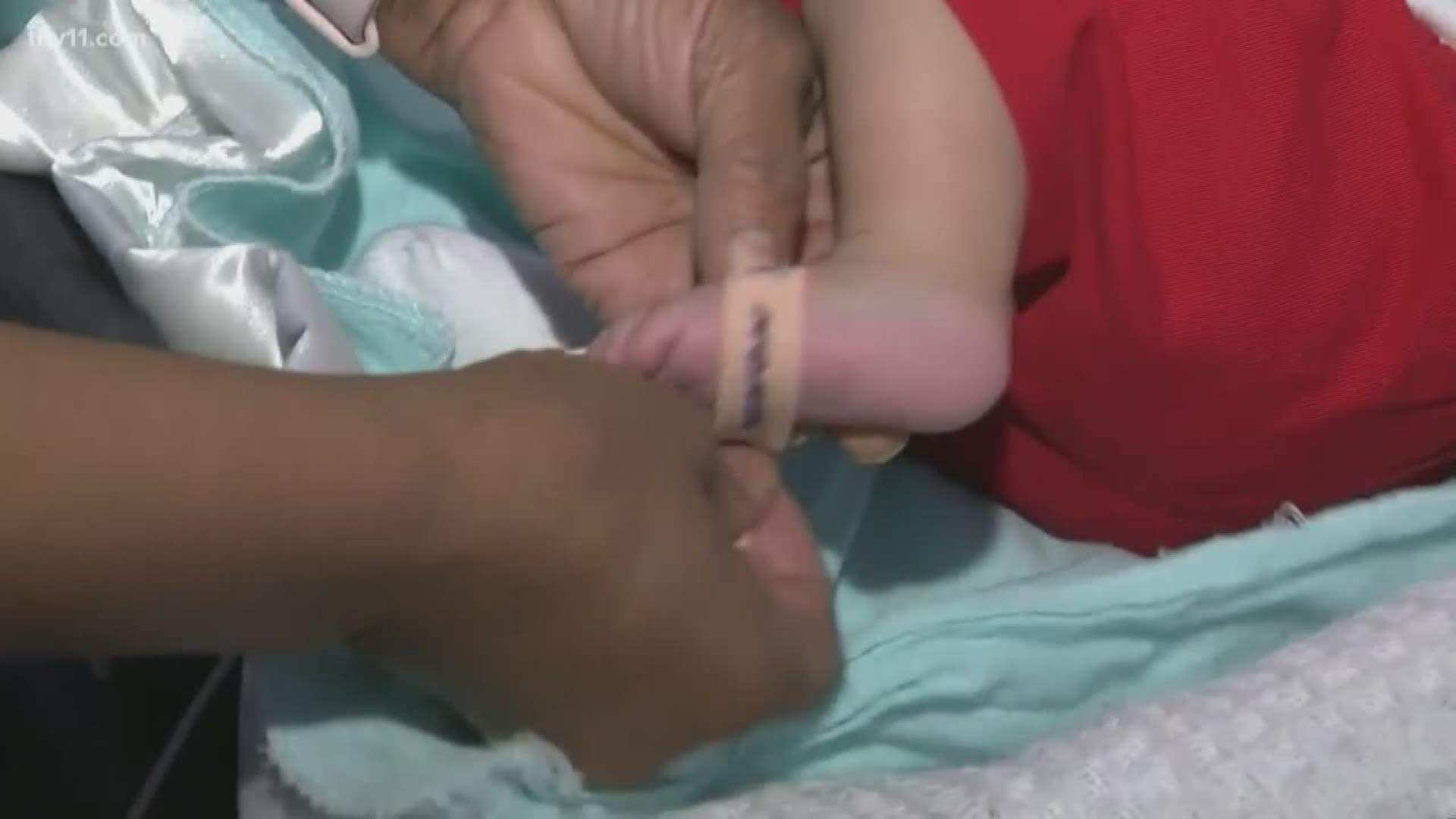LITTLE ROCK, Ark. — The preterm birth rate in Arkansas has risen once again, and health officials say it will take a long time to turn that trend around.
Arkansas ranked 46th among all states and received an F grade in March of Dimes’ annual report card.
“And it was quite concerning to us to see that we got a grade of F,” said Loretta Alexander, health policy director for Arkansas Advocates for Children and Families.
Alexander said the strong correlation between having a mother’s health insurance and positive health outcomes for her and her baby means covering as many people as possible should be a priority for community leaders.
“One thing that I would like to emphasize, though, is the importance for Medicaid being eligible for women before they get pregnant,” Alexander explained, “so that they already have the coverage and they’re more likely to go to the doctor when they do get pregnant.”
Tracey Bradley-Simmons, coordinator of the Arkansas Children’s Hospital Nursery Alliance, said visiting a physician regularly during a pregnancy is the best way for a mother to ensure that she will carry her baby as close to full-term as possible.
She said she has been waiting for this report for several weeks.
“It’s a big deal because it’s really a domino effect when you have a baby that’s born early,” she explained. “They are at risk for multiple complications, mainly respiratory. But, depending on when they were born, they could be facing a very long hospital stay with potential complications as a result of that. And then you have to look at the increased costs. And so, if you have increased costs and no health insurance and, you know, other financial challenges, the factors end up stacking on top of one another.”
The report from March of Times indicated that the high poverty rate in Arkansas may also lead to more premature births.
“We know that there’s challenges in the state that we all need to work on, in terms of access to prenatal care, health care coverage, poverty. All those things are a factor,” Bradley Simmons said. “Additionally, the teen birth rate in the state – which is the highest in the country. So, all those things contribute to increased premature births.”
Alexander said Arkansas is in better shape than it otherwise might be thanks to its Medicaid expansion program, Arkansas Works. It allows more people to have health care coverage.
She said encouraging more eligible people to sign up is important, “and that those Medicaid services are available to physicians across the state, to actually cover women, and make sure that the hospitals are open out there across the state, so people can have local hospitals to go to.”
“We know that there are some expecting mothers that have to drive across multiple counties in order to receive prenatal care,” Bradley-Simmons added.
Through the nursery alliance, Bradley-Simmons helps spread best practices around the state. Five regional hospitals partner with Arkansas Children’s to share training methods and resources that help standardize care, eliminating some of the disparities in outcomes caused by location.
“There’s good work happening with that,” she stated. “Not just with the nursery alliance, but in terms of some very important work they’re doing at the Arkansas Department of Health, and also with some legislative wins, such as passing a bill to make sure we have a maternity, mortality, and review committee to understand what’s contributing to some of these outcomes.”
The premature birth rate in Arkansas was 11.6% in 2018, according to March of Dimes. That was the fourth consecutive increase, after the rate hit a low of 10% in 2014. The national premature birth rate has also increased the last few years.
“When we see a report like this, we don’t slow down or lose hope,” Bradley-Simmons said. “What we do is, we get energized, and you know, work even harder to make sure that we are putting those resources where they’re needed.
“I don’t think there’s a short-term fix. What it’s gonna take is a group of community partners working together to ultimately turn our standing around.”
She said health care clinics need to open in parts of the state where prenatal services may be hard to find. That includes cities or neighborhoods with a larger black population.
March of Dimes reported that the preterm birth rate for black mothers was 14.8% in 2018, compared to 10.3% for white mothers.
“I think, historically, we’re seeing a lot of issues with African-American women, that even higher-income women that have full insurance, that have good care, they’re still having much worse birth outcomes,” Alexander said. “And, all things considered we believe that there’s a racial element to it that, you know, over the years, it’s just that there’s something there that has caused the bodies of these women to be responding to racism, to the cumulative impact that’s bearing itself out by poorer birth outcomes."
“I’ve seen, also, other reports in the last year or so that sometimes, people aren’t as comfortable with their providers, is providers that don’t look like them. So, I think that there could be some pipelines where schools are working to recruit more African-American and other people of color, too, to serve those populations that need the services.”
Alexander also suggested that the state legislature request a change to Arkansas Works to extend the time Medicaid will cover postpartum care. It currently provides care for 60 days after birth, but Alexander said providing care for the first year would help many families pay for medical bills caused by birth-related complications.

